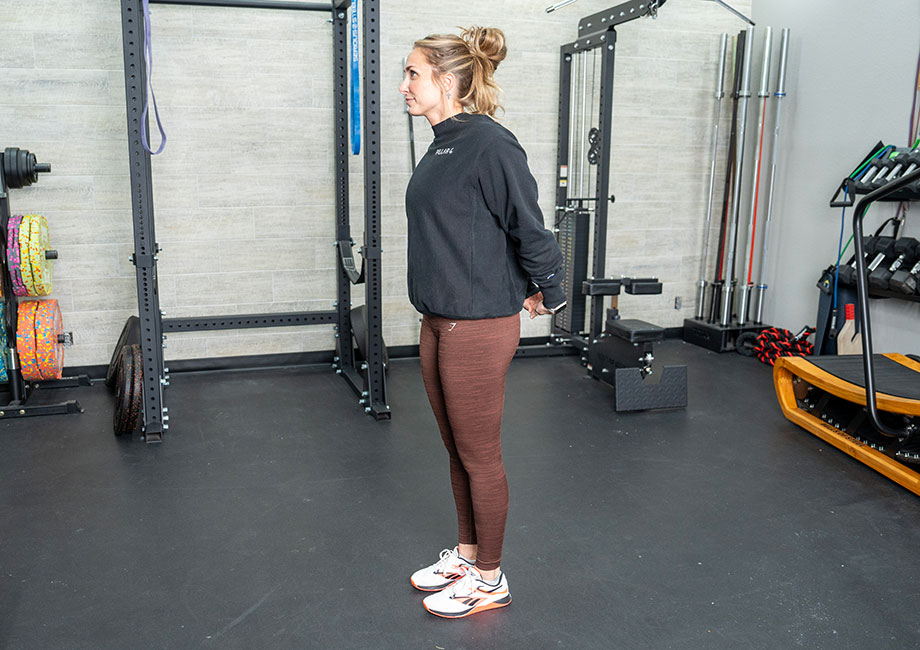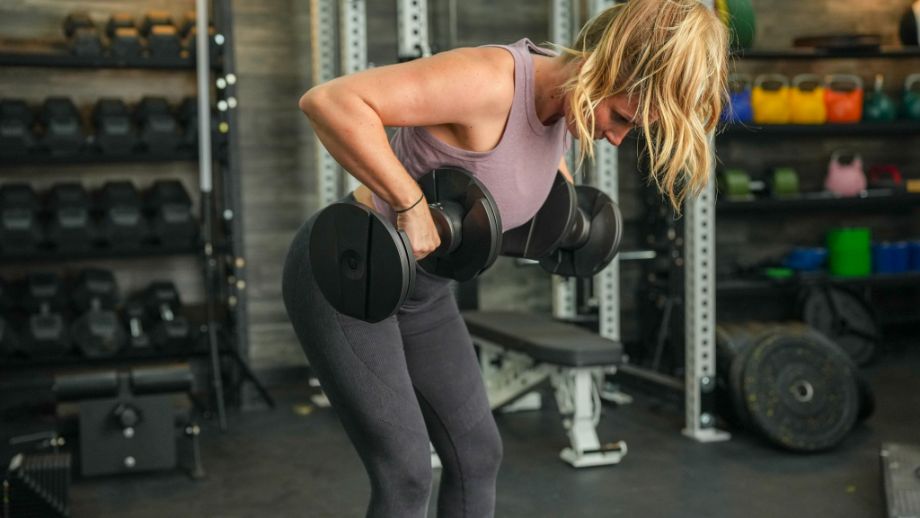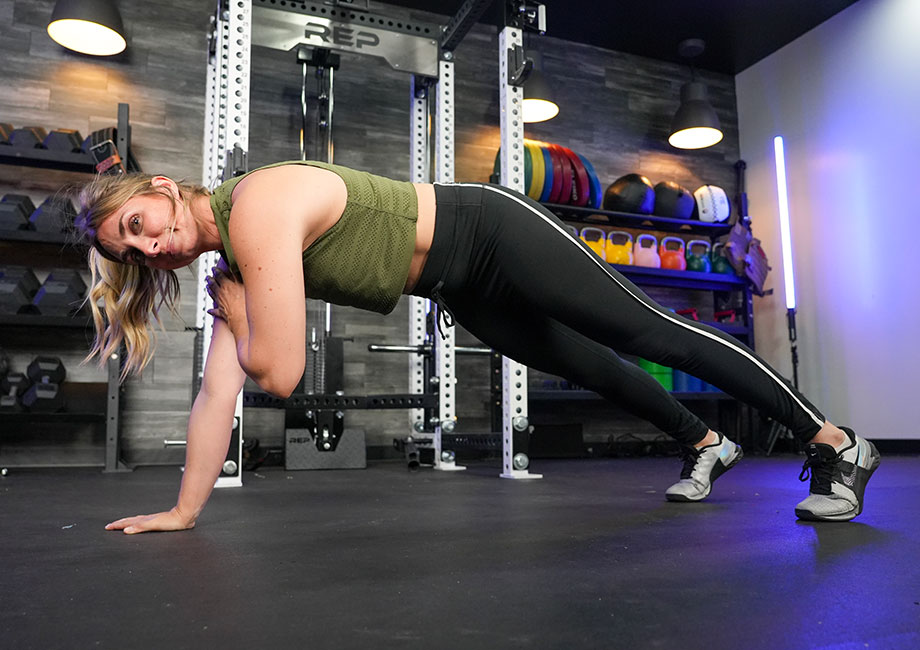If you’re like most people, one of the main reasons you probably started strength training in the first place is to build bigger arms. You’re probably smashing out sets of the best long-head biceps exercises to stretch your sleeves, but have you considered adding biceps stretches to your routine?
Stretches aren’t as exciting as curls, but consider that performing biceps stretches before and/or after your workout can help you lift heavier weights, shorten the muscle’s recovery time, and increase your range of motion.
You don’t have to spend hours on stretching each week, I’ll show you how to do the eight best biceps stretches step-by-step. I’ll give tips on relieving sore biceps based on my experience as a certified personal trainer (CPT) and finish with a section on biceps anatomy.
8 Best Biceps Stretches
Let’s dive straight into my picks for the best biceps stretches you should try:
Standing Biceps Stretch
Why do it: During the standing biceps stretch, you control whether or not your palms face the floor and how far your arms are from your body, making it a fantastic stretch for different abilities.
How to do it:
- Stand tall with your feet shoulder-width apart. You’ll want a neutral head position and your chest sticking up.
- With either your palms facing the floor or each other, interlace your hands behind your back. Move your arms slightly away from your body to make the stretch more effective.
- Hold for the desired length of time.
Expert tip: If your biceps are sore or you’re experiencing shoulder pain, maintain a shorter range of motion.
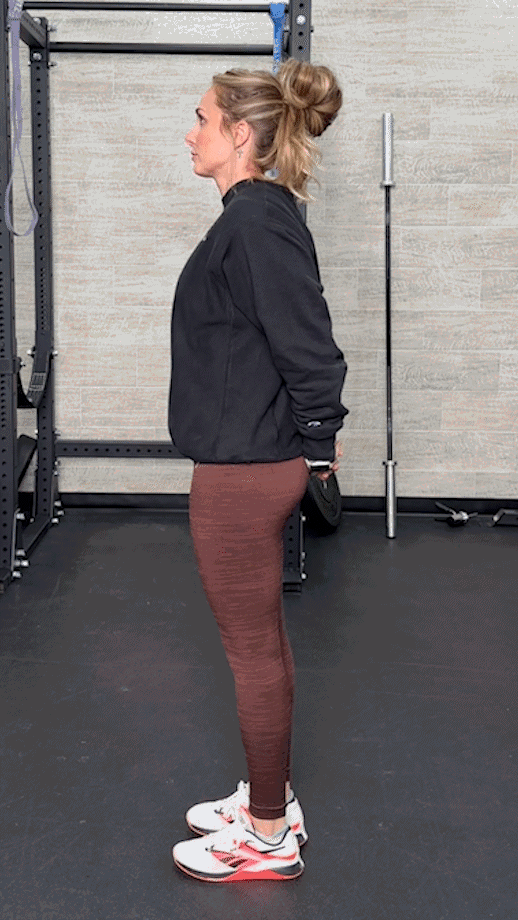
Seated Biceps Stretch
Why do it: I like seated biceps stretches because you can either hold the position for a duration (static stretch) or cycle between the starting position and the shifted forward position as many times as you like (turning it into a more dynamic stretch). It’s also a great stretching exercise for targeting your anterior (front) deltoids.
How to do it:
- Sit down with your feet flat on the floor and your knees bent at 90-degree angles. With your fingers pointing away from you, place your hands on the ground behind your body.
- Brace your core and stick your chest up. Keeping your hands and feet fixed in place, slide your butt forward slightly to stretch your biceps.
- Maintain this position, repeating for reps or time.
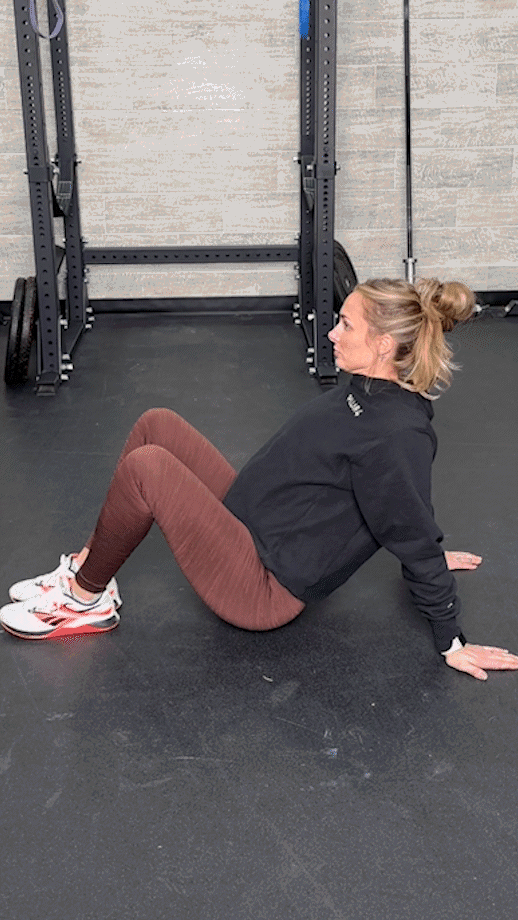
Wringing the Towel Stretch
Why do it: You don’t actually need a towel to perform this stretch. The wringing the towel stretch activates muscles in your neck, shoulders, triceps, and, of course, your biceps.
How to do it:
- Stand upright with your feet hip-width apart. You’ll want your arms extended and out to the sides, with your palms facing the ground.
- Keeping your left hand fixed in place, flip your right hand so your right palm faces the ceiling. At the same time, move your head so you’re looking at your right arm.
- Move your gaze from the right side to the left side, flip your right hand so it faces the floor, and turn your left hand towards the ceiling.
- Continue alternating sides for repetitions.
Expert tip: If you have a desk job or experience muscle soreness after an upper-body workout, include this biceps stretch in your daily regimen.
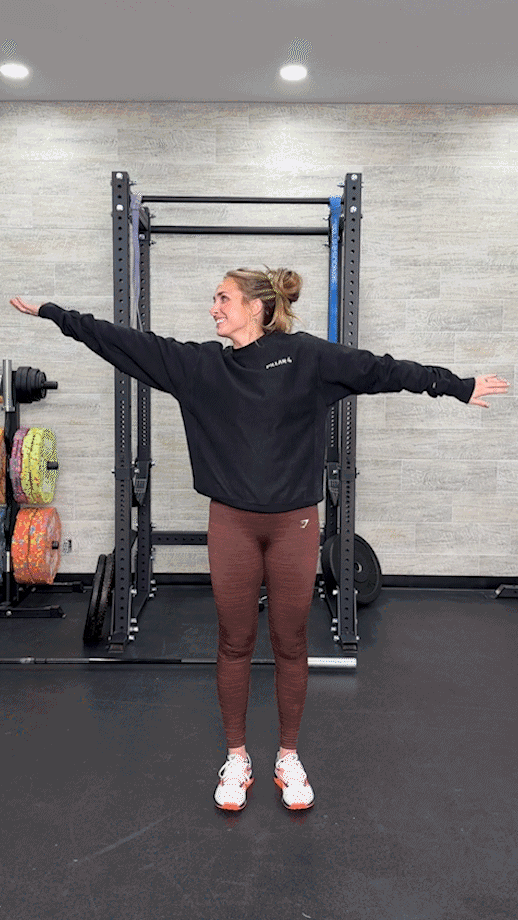
Arm Circles
Why do it: Arm circles are included on many lists of the best warm-up exercises because they increase blood flow and improve the range of motion in your arms (score!) and your shoulders, chest, and lats.
How to do it:
- Stand tall with your feet shoulder-width apart. Your arms should be down by your sides and your shoulder blades should be retracted.
- Rotate both arms behind your body and then around in a circular motion until your arms return to your hips.
- Keep going for the desired duration, then repeat the same motion in the opposite direction.
Expert tip: During arm circles, keeping your arms loose is vital because your elbows shouldn’t be moving.
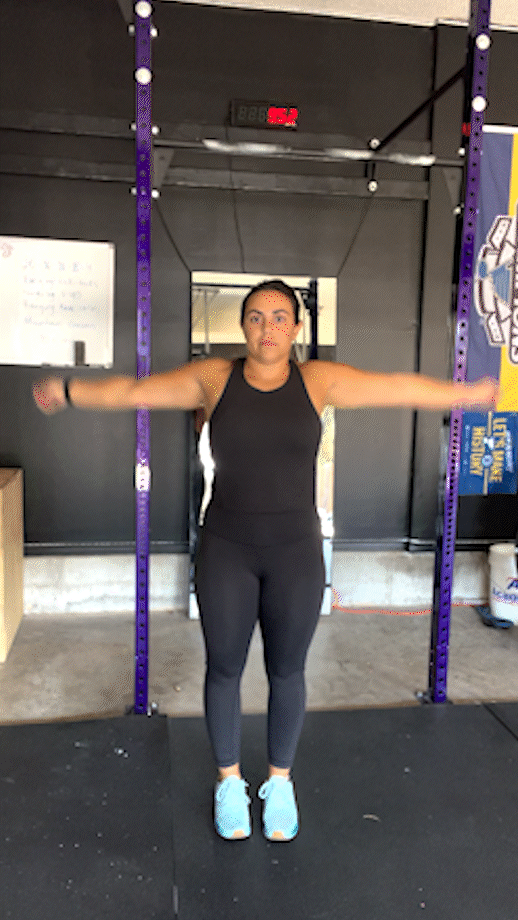
Wall Biceps Stretch
Why do it: With the wall biceps stretch, you’ll stretch each side separately, which can help to address bilateral deficits1.
How to do it:
- Stand facing roughly one arm’s length away from a wall. Place your left hand on the wall so it’s at shoulder height.
- Engage your core, squeeze your glutes, and slowly move your feet and body toward the right until you feel your biceps stretching. You’ll want to be between a 45 and 90-degree angle to the wall.
- Hold this position before switching sides.
Expert tip: Although I specifically called out placing your hand on the wall at shoulder height, feel free to play around with different positions to stretch your biceps.
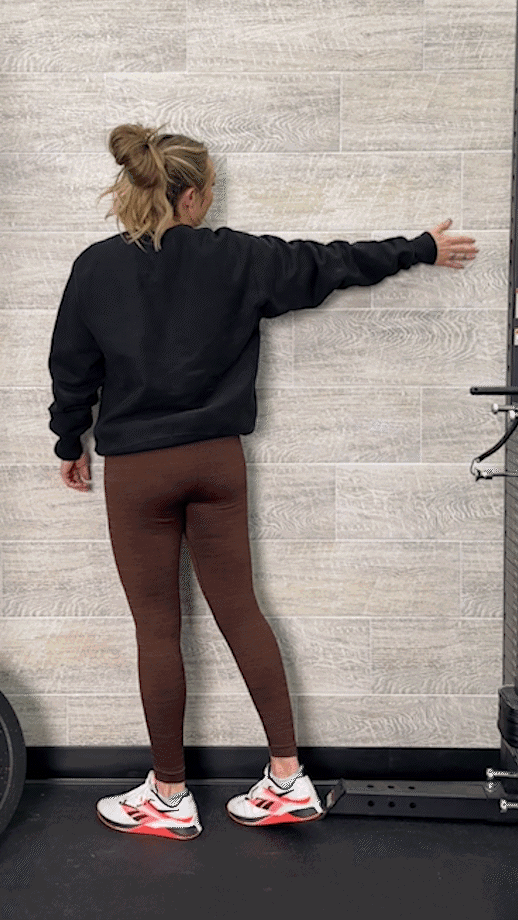
Doorway Biceps Stretch
Why do it: Wall biceps stretches look similar to doorway biceps stretches, but there’s one major difference. With doorway biceps stretches, your arm is directly behind you—rather than to the side—which places more emphasis on your shoulder joints (and therefore on your biceps).
How to do it:
- Hold a door frame with your left hand. You’ll want your left arm to be straight here.
- Rotate your body so the doorway is behind you, and then brace your core and lift your chest up.
- Maintain for the desired duration of time, and then switch to the right side.
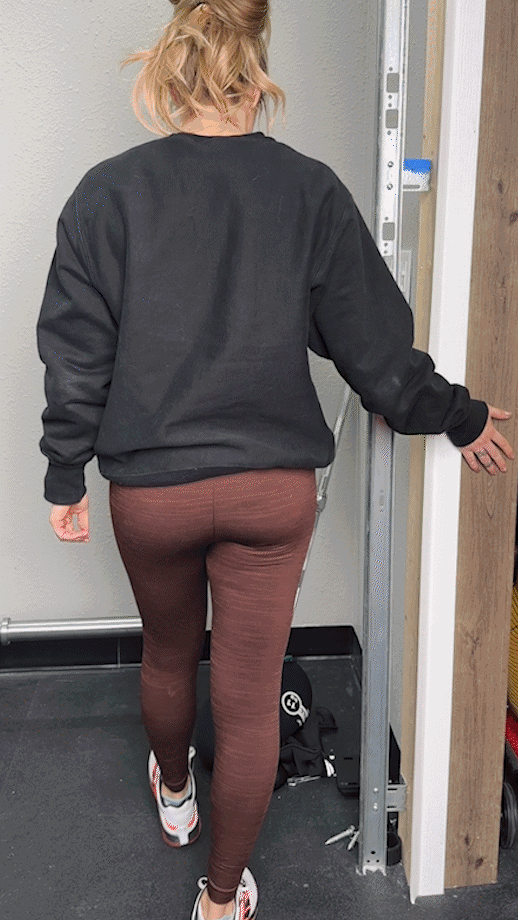
Wrist Rotations
Why do it: The main functions of the biceps2 are elbow flexion and forearm supination. The starting position of this stretch is with your elbows bent at 90-degree angles (elbow flexion), and the internal and external rotations of the wrists mean you’re supinating and pronating your forearms.
How to do it:
- Stand tall with your left elbow bent at a 90-degree angle and tucked into your body. Your right arm should be extended by your side.
- With an open hand and your fingers pointing away from you, rotate your left wrist toward the left side, so your palms face the ceiling. Pause before returning to the center.
- Now, twist your left wrist to the right so your palm faces the floor. Cycle between the two positions.
- Replicate these rotations with your right wrist.
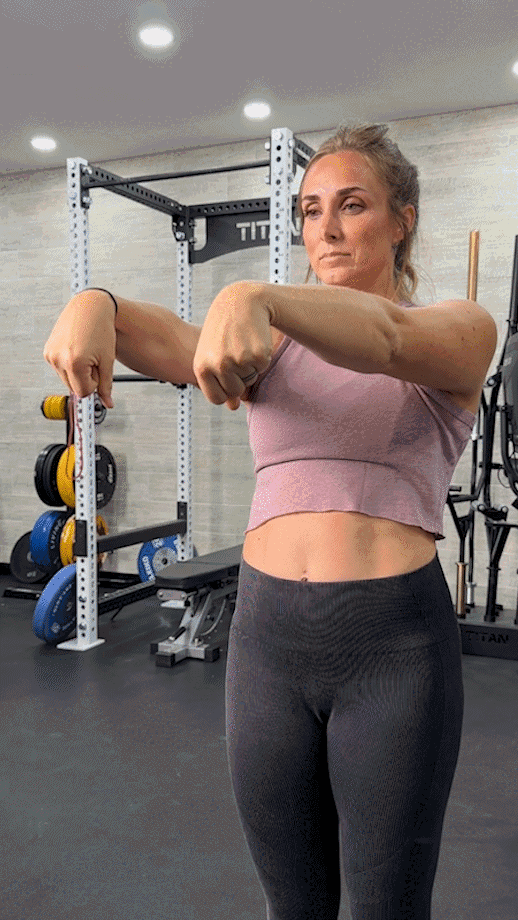
Hanging Biceps Stretch
Why do it: Bodyweight exercises such as pull-ups typically start in the dead-hang position, which you can utilize to stretch your biceps. Doing this regularly can strengthen and stretch the biceps, lats, shoulders, upper back, and core. You’ll likely improve your grip strength, too.
How to do it:
- Using one of the best pull-bars, take hold of the handles with either an overhand grip (palms facing away from you), neutral grip (palms facing each other), or underhand grip (palms facing toward you).
- Lift your feet off the platform to get into the dead-hang position.
- Hold before reversing the motion to return to the floor.
- Repeat for reps or duration.
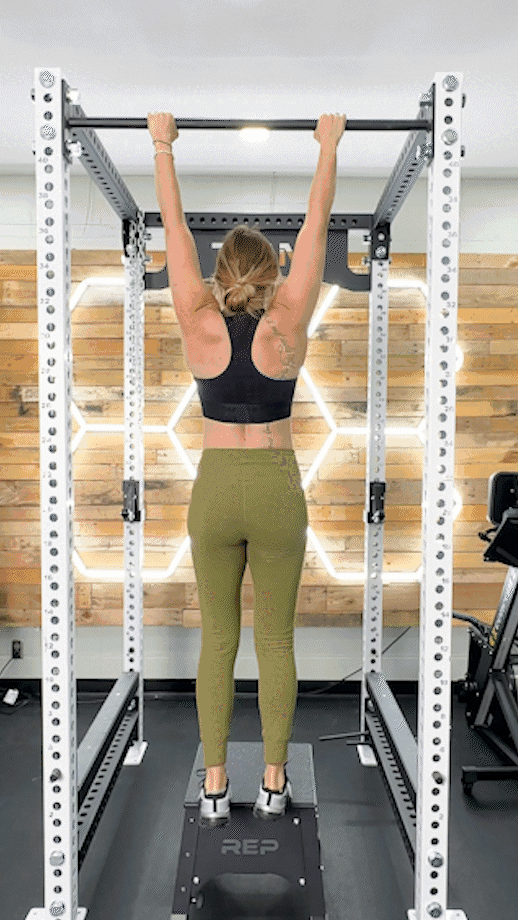
Trainer Tips For Biceps Stretching
Now that you know and understand how to do the eight best biceps stretches, here are four tips to make the most out of them based on my 10 years of experience training and working with clients as a certified personal trainer (CPT):
- Don’t rush. According to the American College of Sports Medicine (ACSM)3, stretches should last 15 to 30 seconds and be repeated for two to four sets or rounds. Older adults may require stretches lasting closer to 60 seconds. It’s better to pick one or two biceps stretches and do them properly rather than rushing through them.
- Try both static and dynamic stretches. Some people prefer and get greater benefits from static stretches, and others from dynamic stretches. Try both to see what works for you.
- Remember to breathe. When you start something new or uncomfortable, it can be tempting to hold your breath because you have several other things to think about. This can make stretches more challenging than they need to be. Breathe in and out during your biceps stretches.
- Stop if they’re painful. I appreciate that you may need to push outside of your comfort zone with biceps stretches, but at the same time, they shouldn’t be causing you extreme pain or discomfort. If they do, stop immediately.
Benefits of Biceps Stretches
There are so many benefits of stretching, in general, beyond what it can do for your biceps. So, I’ve narrowed it down to my top three benefits of biceps stretches:
Increases Flexibility
When you do arm workouts, you want your arms to be as flexible as possible—the same applies to any other muscle group—to reduce the risk of injury and decrease pain. Regularly performing biceps stretches increases the range of motion in the biceps, improving flexibility3. This is even more important as you age and your muscles become shorter.
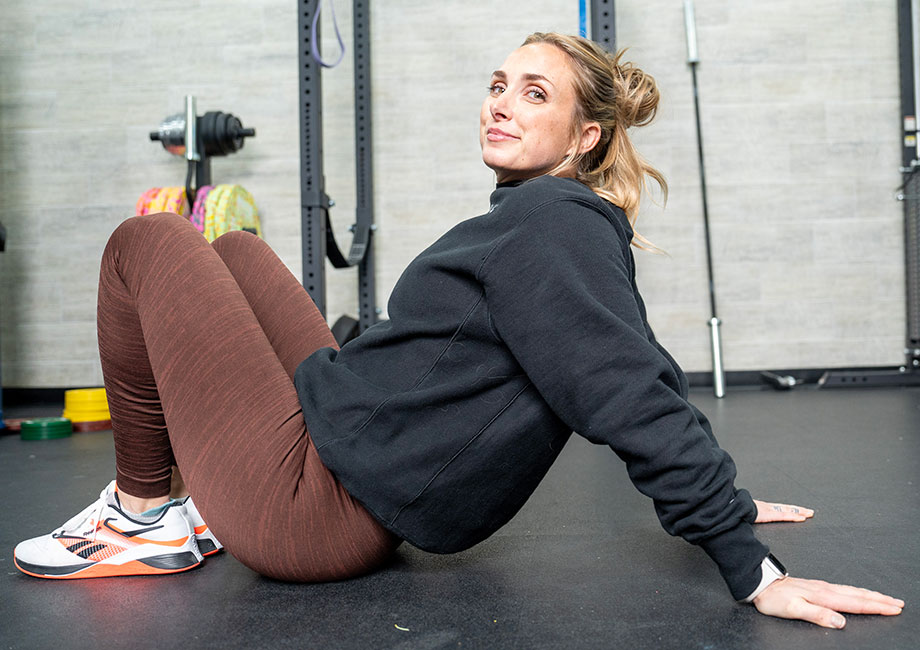
May Help Improve Your Lifts
Stretching before doing biceps curls or any biceps workout can help you lift heavier loads. This is because warming up your muscles can improve blood flow, elevate your heart rate, and loosen up your muscles. A 2010 study by the Journal of Strength and Conditioning Research4 concurs—it found that warm-up activities may lead to performance improvements.
Shortens Recovery Time
If you’re lifting heavy weights, there’s a chance you may experience delayed-onset muscle soreness (also known as DOMS) the following day. Not only this, but you may have built up lactic acid in your biceps. Cool down, aka post-workout stretches for the biceps may help reduce lactic acid and return your body to pre-exercise levels quicker. That said, the research is currently mixed5 on the effectiveness of post-workout stretching. Still, in my experience, a good stretch after a tough biceps workout feels infinitely better than doing nothing.
RELATED: Cool Down Exercises
Tips for Relieving Sore Biceps
First things first—this is not official medical advice, and if your biceps continue to remain sore after trying these tips, please consult a doctor or physical therapist. With that in mind, here are my three tips for relieving sore biceps (aside from stretching):
Drink More Water
Athletes lose between six and 10% of their body weight in sweat6 during physical activity. We might not lose as much, but if we don’t replenish our fluid levels after exercise, this could lead to dehydration. And unfortunately, dehydration can negatively affect our recovery. Of course, you’ll want to drink water before, during, and after exercise.
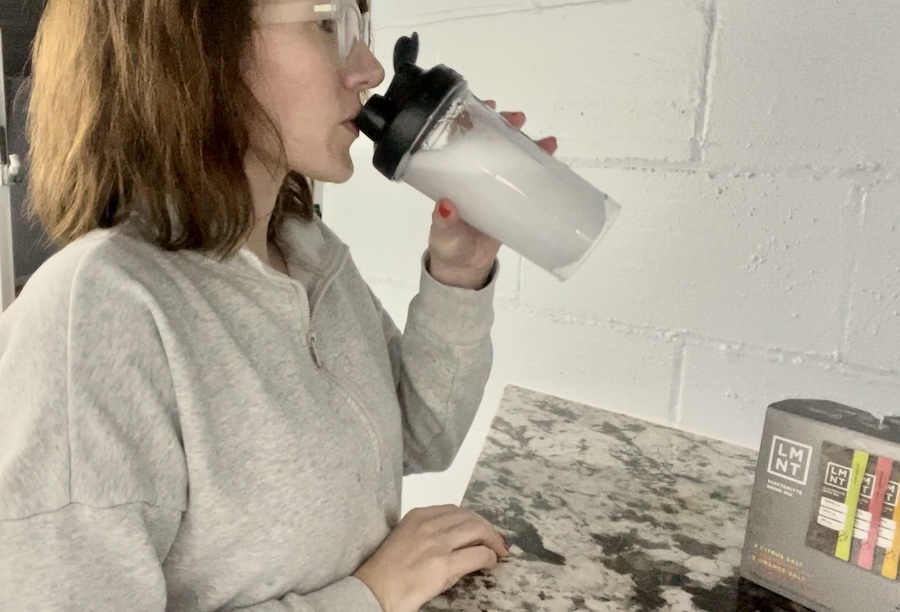
RELATED: Best Electrolyte Drinks
Use A Massage Gun
Using one of the best massage guns on your biceps may aid pain relief from the comfort of your home because massage guns increase blood flow to the targeted area (in this case, the biceps). You could also try a foam roller, but I’ve found that some areas are harder to reach than others with a foam roller—and the biceps are one of the hardest.
Take a Break
If all else fails, take a break from training your biceps. Yes, I know you want bigger arms, but a week or two shouldn’t affect your gains in the long run. In my experience, you’ll come back stronger and in less pain, resulting in a reduced risk of injury and longer biceps sessions when you return—a win-win if you ask me!
Biceps Anatomy
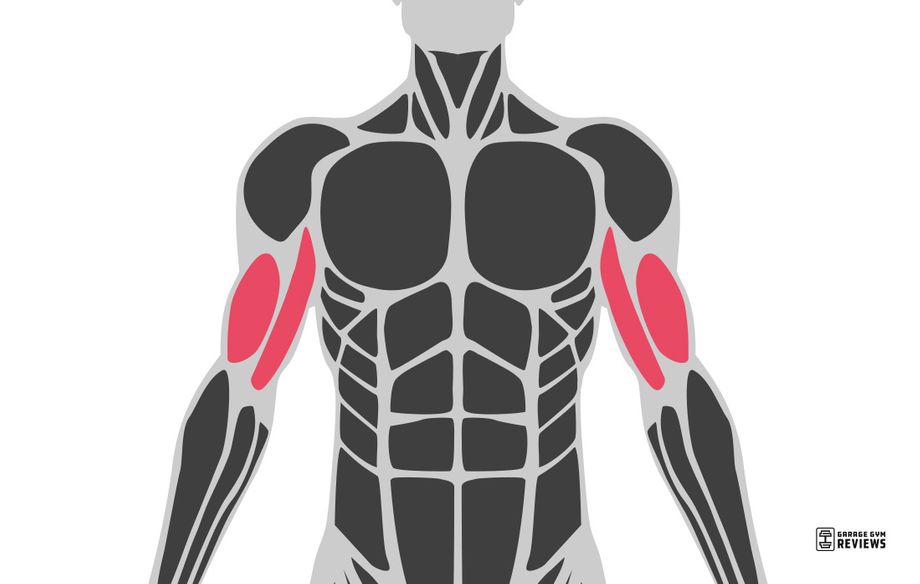
Last but not least, let’s briefly talk about biceps anatomy. The biceps muscle (also known as the biceps brachii) is a large, thick muscle on the ventral portion of the upper arm7. It consists of two heads—the long head (lateral side) and the short head (medial side). The biceps are responsible for supinating the forearm (when you turn your palms upward) and flexing the elbow (brachialis).
Additionally, when you perform any overhead movement (think of a dumbbell shoulder press or overhead press), you use the biceps and triceps to stabilize the shoulder joints.
Biceps Stretches: Final Thoughts
It’s common to try new exercises and increase loads to build muscle in the biceps, but stretching them is just as important. Regularly doing biceps stretches can increase your flexibility, possibly shorten recovery time, and improve your lifts.
To review, here are the eight best biceps stretches for you to try:
- Standing biceps stretch
- Seated biceps stretch
- Wringing the towel stretch
- Arm circles
- Wall biceps stretch
- Doorway biceps stretch
- Wrist rotations
- Hanging biceps stretch
Biceps Stretches: FAQs
Is it good to stretch sore biceps?
For sore biceps, gentle stretching may help because one of the main benefits of stretching is that it increases blood flow to the target area (in this instance, your biceps). Stretching can’t eliminate pain, but it may help break down the accumulation of lactic acid. If you’ve tried regular stretching and are still sore, consult your doctor or physical therapist.
What is the best stretch for sore biceps?
I wouldn’t say that one stretch is the best for sore biceps because every individual is different and different stretches work for different people.
Start by trying one of the eight biceps stretches below and see which one works best for you:
-Standing biceps stretch
-Seated biceps stretch
-Wringing the towel stretch
-Arm circles
-Wall biceps stretch
-Doorway biceps stretch
-Wrist rotations
-Hanging biceps stretch
What causes tight biceps?
Tight biceps can be caused by several factors, including, but not limited to, working them too much, dehydration, a previous or current injury (for example, biceps tendonitis), stress, or your body’s mechanics. If your biceps are extremely tight, it might be a good idea to take a break from training them and consider physical therapy.
How do you release tension in your biceps?
There are several things you can try to release tension in your biceps. First, you can try stretching to see if it helps. You could also use a massage gun to increase blood flow to your biceps. Resting the biceps completely may also release tension in the biceps. If none of these tips work, then it’s best to speak with a licensed medical professional for the next steps.
References
- Škarabot J, Cronin N, Strojnik V, Avela J. Bilateral deficit in maximal force production. Eur J Appl Physiol. 2016 Dec;116(11-12):2057-2084. doi: 10.1007/s00421-016-3458-z. Epub 2016 Aug 31. PMID: 27582260.
- Güleçyüz MF, Pietschmann MF, Michalski S, Eberhard FM, Crispin A, Schröder C, Mittermüller MJ, Müller PE. Reference Values of Flexion and Supination in the Elbow Joint of a Cohort without Shoulder Pathologies. Biomed Res Int. 2017;2017:1654796. doi: 10.1155/2017/1654796. Epub 2017 Oct 24. PMID: 29204437; PMCID: PMC5674724.
- Page P. Current concepts in muscle stretching for exercise and rehabilitation. Int J Sports Phys Ther. 2012 Feb;7(1):109-19. PMID: 22319684; PMCID: PMC3273886.
- Fradkin AJ, Zazryn TR, Smoliga JM. Effects of warming-up on physical performance: a systematic review with meta-analysis. J Strength Cond Res. 2010 Jan;24(1):140-8. doi: 10.1519/JSC.0b013e3181c643a0. PMID: 19996770.
- Herbert RD, de Noronha M, Kamper SJ. Stretching to prevent or reduce muscle soreness after exercise. Cochrane Database Syst Rev. 2011 Jul 6;(7):CD004577. doi: 10.1002/14651858.CD004577.pub3. PMID: 21735398.
- Popkin BM, D’Anci KE, Rosenberg IH. Water, hydration, and health. Nutr Rev. 2010 Aug;68(8):439-58. doi: 10.1111/j.1753-4887.2010.00304.x. PMID: 20646222; PMCID: PMC2908954.
- Tiwana MS, Charlick M, Varacallo M. Anatomy, Shoulder and Upper Limb, Biceps Muscle. 2023 Aug 28. In: StatPearls [Internet]. Treasure Island (FL): StatPearls Publishing; 2024 Jan–. PMID: 30137823.


